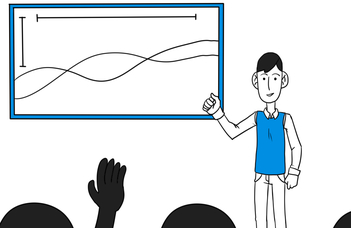Plenáris előadások
I. Felsőoktatás Felsőfokon Konferencia – Plenáris előadások

Plenáris előadások
Június 15.
14:20-15:15 |
|
| Alison Canham: In search of ‘excellence’ | |
|
‘Excellence’ is an elusive concept, assumed to be the pinnacle of aspiration, sometimes considered a siren distraction or an unattainable dream, and most often means different things to different people. The UK has spent over twenty years attempting to identify, standardise and celebrate what works best in higher education teaching, mostly through teacher recognition frameworks, awards and pedagogic staff development. Over time – and it has taken time - the agenda has gained traction with enthusiasts and sceptics. By drawing on examples from a range of enhancement initiatives this presentation will encourage participants to reflect on their personal experiences of striving for excellence in their teaching practice and to think about how this connects with institution and student expectations. |
|
|
Alison Robinson Canham is a freelance educator and consultant specialising in individual, team and organisational development. Alison has previously held positions at the Open University, the University of Hull, the Royal Veterinary College, and the Higher Education Academy (now Advance HE). She has a particular interest in the professionalisation of university teaching; parity of esteem between teaching and research practices; and the interconnection between government policy, higher education and entry to professional occupations.. Alison works across academic, professional and clinical disciplines, and has worked on projects in the UK, Europe, Australasia and South Africa. Her work is underpinned by deep ideological commitments to the transformative power of education, and equality of access to education and active citizenship. |
|
| Alison has been instrumental in the successful implementation and expansion of many teaching excellence initiatives in the UK, including the Higher Education Academy Fellowship Scheme and the National Teaching Excellence Awards. She has served as an expert contributor to higher education staff development initiatives for the European University Association and the South Africa/EU Dialogue Facility. | |
15:20-16:10 |
|
|
prof. dr. Halász Gábor: Doktori képzés: globális trendek, kihívások, új megoldások
|
|
| Az előadás átfogó képet kíván nyújtani azokról a kihívásokról, melyekkel doktori képzés az elmúlt két-három évtizedben globális, ezen belül európai szinten szembesült, továbbá azokról a változásokról, melyek ezek nyomán indultak el az oktatási rendszernek ebben az alrendszerében. Elsősorban felsőoktatás-pedagógiai perspektívában elemzi e folyamatokat, így főképp azokra a változásokra fókuszál, melyek érinthetik a tanulás/tanítás megszervezését, a képzési formára jellemző tanulási környezetek alakulását és az itt alkalmazott pedagógiai módszereket. Így kiemelt figyelmet fordít olyan tényezőkre, mint a képzési forma expanziója és a hallgatói diverzitás növekedése, az innovációs politikák erősödő hatása, a doktori fokozattal rendelkezők integrálódása a munka világába, a transzverzális képességek fejlesztése iránti növekvő igények, a minőséggel és kiválósággal kapcsolatos elvárások változása és a területet érintő pedagógiai innovációk lehetséges hatásai. |
|
Halász Gábor a Magyar Tudományos Akadémia doktora. A Budapesti Eötvös Loránd Tudományegyetem Pedagógiai és Pszichológiai Karának neveléstudományi professzora, ahol a Felsőoktatás – és Innovációkutató Csoport munkáját és a Neveléstudományi Doktori Iskola egyik programját vezeti (főként nemzetközi doktoranduszok számára). Tanít többek között oktatáspolitikát, felsőoktatás-szociológiát, oktatást és európai integrációt, valamint az oktatás globális trendjeit. Korábban a Magyar Oktatáskutató és Fejlesztő Intézet főigazgatója volt, ahol később tudományos tanácsadói pozíciót töltött be. Halász professzor számos nemzetközi szervezetnek, különösen az OECD-nek, az Európai Bizottságnak, a Világbanknak és az Európa Tanácsnak dolgozott szakértői tanácsadóként. 1996 és 2021 között ő képviselte Magyarországot a CERI (OECD) igazgatótanácsában, kétszer volt a testület elnöke is. |
|
| Jelenleg Halász professzor egy négyéves kutatási projektet vezet, amely a tanári tanulás és a szakmai fejlődés különböző formáinak hatékonyságát vizsgálja. Korábban többéves projekteket vezetett a fejlesztő beavatkozásoknak az iskolai oktatásban az osztálytermi szintű folyamatokra gyakorolt hatásáról, valamint a helyi innovációk megjelenéséről és elterjedéséről, illetve azok rendszerszintű hatásáról az oktatási ágazatban. További információ Halász Gábor személyes honlapján található: http://halaszg.elte.hu/ | |
Június 16.
10:00-11:00 |
|
|
Alenoush Saroyan: Importance of quality university teaching in a changing world
|
|
| Demographic shifts, international mobility, and stakeholders’ expectations of graduate outcomes have forced postsecondary institutions to pay greater attention to the quality of teaching. Over time, the definition and attributes of effective university teaching have changed: from a focus on how professors teach to the impact of their teaching on student learning and from fostering disciplinary knowledge to also developing cognitive, social and emotional skills. These changes have brought to fore the necessity to think differently about course design, teaching approaches, and learning spaces that accommodate innovative pedagogies. This plenary offers a perspective on why teaching is particularly important now, an evidence-based elaboration of effective teaching that can foster knowledge, skills and attitudes required to achieve greatest potential in the world today, and structures and best practices that support the development of university teaching. |
|
Alenoush Saroyan is Professor Emerita of Educational Psychology, the Director of the McGill International Institute of Education, and the previous Chair of the Department Educational and Counselling Psychology at McGill University in Montréal, Canada. Her areas of specialization and research are the pedagogical development of academics, academic leadership, quality assurance, and the reform of postsecondary systems. She has served as a consultant to various international organizations including The World Bank, UNESCO and the OECD, contributing to higher education reform projects, projects related to improving and assessing teaching quality, and the development and implementation of quality assurance frameworks, processes, and practices. Her publications include articles, edited books and book chapters on educational development and assessing quality at the university level. |
Várjuk résztvevőként oktatóink, hallgatóink jelentkezését az Eötvös Loránd Tudományegyetemen megrendezendő 2022. évi konferenciánkra!
A konferencia ingyenes, de regisztrációhoz kötött: https://www.elte.hu/felsooktatas-felsofokon/jelentkezes
Jelentkezési határidő: 2022. június 13.
Kérdés esetén elérhetőségünk: ffkonferencia@oktig.elte.hu
